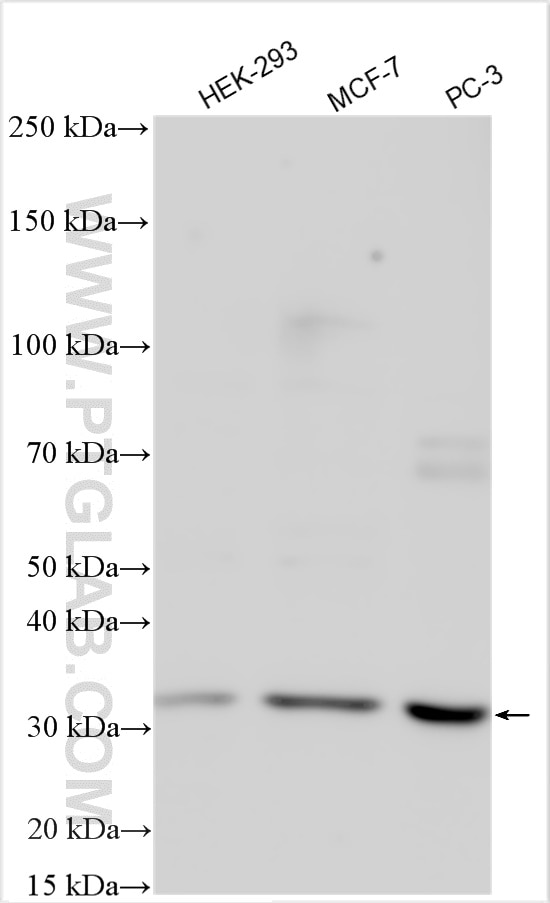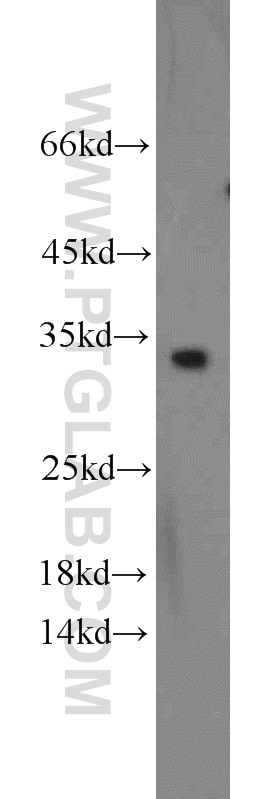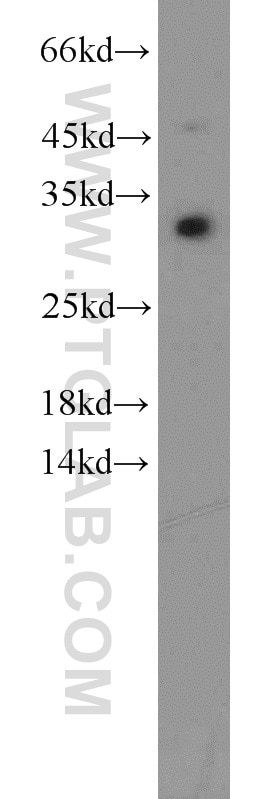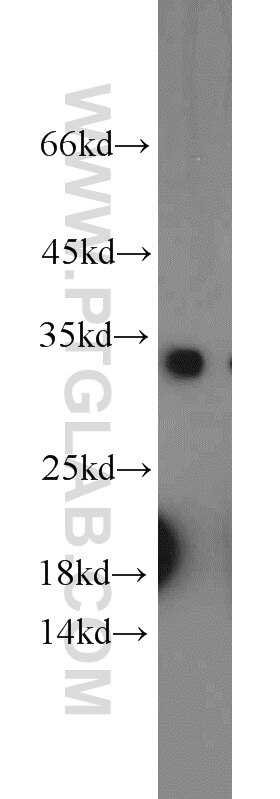- Phare
- Validé par KD/KO
Anticorps Polyclonal de lapin anti-CDCA4
CDCA4 Polyclonal Antibody for WB, ELISA
Hôte / Isotype
Lapin / IgG
Réactivité testée
Humain, souris
Applications
WB, IP, IF, CoIP, ELISA
Conjugaison
Non conjugué
N° de cat : 11625-1-AP
Synonymes
Galerie de données de validation
Applications testées
| Résultats positifs en WB | cellules HEK-293, cellules HeLa, cellules MCF-7, cellules PC-3 |
Dilution recommandée
| Application | Dilution |
|---|---|
| Western Blot (WB) | WB : 1:500-1:3000 |
| It is recommended that this reagent should be titrated in each testing system to obtain optimal results. | |
| Sample-dependent, check data in validation data gallery | |
Applications publiées
| KD/KO | See 4 publications below |
| WB | See 6 publications below |
| IF | See 1 publications below |
| IP | See 1 publications below |
| CoIP | See 1 publications below |
Informations sur le produit
11625-1-AP cible CDCA4 dans les applications de WB, IP, IF, CoIP, ELISA et montre une réactivité avec des échantillons Humain, souris
| Réactivité | Humain, souris |
| Réactivité citée | Humain, souris |
| Hôte / Isotype | Lapin / IgG |
| Clonalité | Polyclonal |
| Type | Anticorps |
| Immunogène | CDCA4 Protéine recombinante Ag2214 |
| Nom complet | cell division cycle associated 4 |
| Masse moléculaire calculée | 241 aa, 26 kDa |
| Poids moléculaire observé | 33 kDa |
| Numéro d’acquisition GenBank | BC025263 |
| Symbole du gène | CDCA4 |
| Identification du gène (NCBI) | 55038 |
| Conjugaison | Non conjugué |
| Forme | Liquide |
| Méthode de purification | Purification par affinité contre l'antigène |
| Tampon de stockage | PBS avec azoture de sodium à 0,02 % et glycérol à 50 % pH 7,3 |
| Conditions de stockage | Stocker à -20°C. Stable pendant un an après l'expédition. L'aliquotage n'est pas nécessaire pour le stockage à -20oC Les 20ul contiennent 0,1% de BSA. |
Informations générales
TRIP-Br proteins are a set of proteins with the potential to function in both transcriptional control and cell cycle regulation [PMID:18572021]. CECA4 is a member of TRIP-br family, based on its homologous sequence motifs including SERTA and a PHD-bromo-binding site which interacts with a series of bromodomain containing transcriptional cofactors[PMID:17141982]. When activated by E2F, CDCA4 consequently functions as a suppressor of E2F-responsive promoters to participate the regulation of cell proliferation through the E2F/pRb pathway [PMID:16098148].
Protocole
| Product Specific Protocols | |
|---|---|
| WB protocol for CDCA4 antibody 11625-1-AP | Download protocol |
| Standard Protocols | |
|---|---|
| Click here to view our Standard Protocols |
Publications
| Species | Application | Title |
|---|---|---|
Cancer Cell The DLEU2/miR-15a/16-1 cluster controls B cell proliferation and its deletion leads to chronic lymphocytic leukemia.
| ||
Sci Rep Hepatocellular Carcinoma-propagating Cells are Detectable by Side Population Analysis and Possess an Expression Profile Reflective of a Primitive Origin. | ||
Cancer Cell Int CDCA4 suppresses epithelial-mesenchymal transtion (EMT) and metastasis in Non-small cell lung cancer through modulating autophagy.
| ||
Thorac Cancer CDCA4 interacts with IGF2BP1 to regulate lung adenocarcinoma proliferation via the PI3K/AKT pathway
| ||
Gene ALKBH5 promotes the development of lung adenocarcinoma by regulating the polarization of M2 macrophages through CDCA4
| ||
Front Mol Biosci Construction of shared gene signature between rheumatoid arthritis and lung adenocarcinoma helps to predict the prognosis and tumor microenvironment of the LUAD patients |





